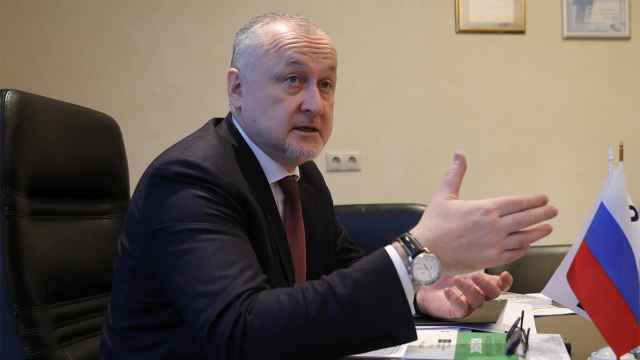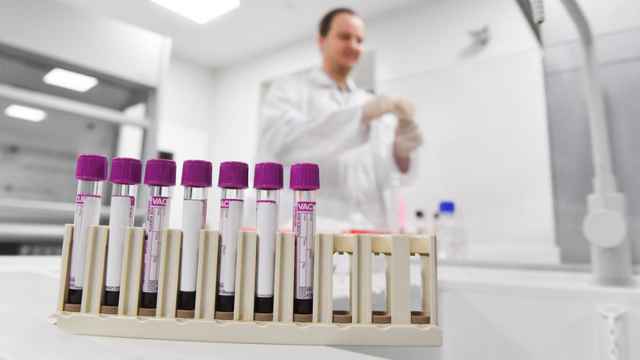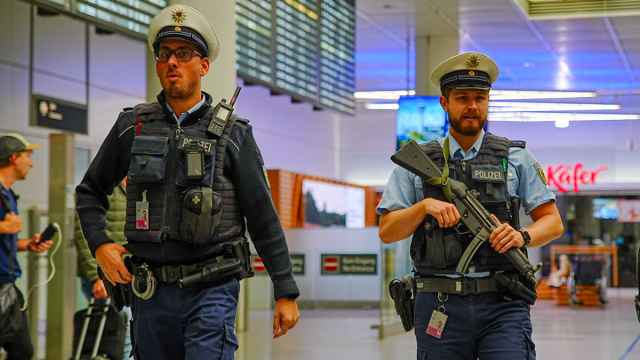The former head of athletics' world governing body, Lamine Diack, was on Wednesday found guilty by a French court of corruption in covering up Russian doping cases and sentenced to four years in prison, two of which were suspended.
Diack, an 87-year-old Senegalese who led the International Association of Athletics Federations (IAAF), now renamed World Athletics, for 16 years was also fined 500,000 euros ($600,000).
The presiding judge in the court in Paris, Rose-Marie Hunault, said Diack's actions had "caused serious damage to the fight against doping".
Other senior figures in track and field, including Diack's son Papa Massata Diack and the IAAF's former head of anti-doping Gabriel Dolle, were also given prison terms for their part in a scheme in which 23 Russian athletes had their doping offences hushed up so they could compete at the 2012 London Olympics and 2013 world championships in Moscow.
Papa Massata Diack, a former marketing consultant for the IAAF, who was tried in absentia because Senegal refused to extradite him, was sentenced to five years in prison and fined one million euros.
Previously one of the most influential figures in world sport, Lamine Diack was president of the IAAF from 1999 to 2015 until he was replaced by Britain's Sebastian Coe in August 2015.
'Full Protection'
The prosecution alleged that under the scheme, named "Full Protection", individual Russian athletes paid 3.2 million euros ($3.8 million) in exchange for the IAAF's anti-doping body covering up their drug-taking.
Diack told the court it was his decision to waive bans after the athletes failed tests in 2011, but he denied knowing that officials from the body had directly or indirectly asked those athletes for payment to hush up their cases.
He said he was acting to safeguard "the financial health of the IAAF" because the federation was negotiating major sponsorship contracts with Russian bank VTB and a Russian broadcaster at the time.
Diack, who was decorated in the Kremlin in late 2011, denied taking an additional $1.5 million of Russian funding to finance the successful campaign by Macky Sall for the Senegal presidency.
Diack, who was in court to hear his sentence, said he would immediately lodge an appeal.
The judge said Diack was unlikely to go to prison, telling him: "Given your age you can expect conditional release."
Dolle was sentenced to two years in prison suspended and fined 140,000 euros and lawyer Habib Cisse, who was Lamine Diack's advisor, was given three years in prison, of which two were suspended.
Two Russian officials tried in their absence, the former president of the national athletics federation Valentin Balakhnichev, who was also IAAF treasurer, and the former coach Alexei Melnikov, were given prison sentences of three years and two years respectively.
Balakhnichev said he too would appeal, telling Russian agency Ria Novosti that French authorities "deprived me of my legal right to defend myself and said I did not cooperate with the investigation, which I categorically deny".
Reacting to the verdict, World Athletics said it was grateful for the 16 million euros compensation that the court ordered those found guilty to pay, and insisted that new structures put in place would prevent such practices ever re-occurring.
"Whilst we are disappointed this happened in our sport, we are grateful for the strong and clear decisions that have been taken against the individuals involved and charged with these crimes, and we would like to reassure everyone that the reforms our Congress approved in 2016 will ensure that similar actions by individuals can never happen again in our sport," the federation said in a statement.
"As the court acknowledged, this damage has impacted World Athletics' image and reputation in a deep and lasting way," the federation said in a statement.
"We will do everything we can to recover the monies awarded, and return them to the organisation for the development of athletics globally."
A Message from The Moscow Times:
Dear readers,
We are facing unprecedented challenges. Russia's Prosecutor General's Office has designated The Moscow Times as an "undesirable" organization, criminalizing our work and putting our staff at risk of prosecution. This follows our earlier unjust labeling as a "foreign agent."
These actions are direct attempts to silence independent journalism in Russia. The authorities claim our work "discredits the decisions of the Russian leadership." We see things differently: we strive to provide accurate, unbiased reporting on Russia.
We, the journalists of The Moscow Times, refuse to be silenced. But to continue our work, we need your help.
Your support, no matter how small, makes a world of difference. If you can, please support us monthly starting from just $2. It's quick to set up, and every contribution makes a significant impact.
By supporting The Moscow Times, you're defending open, independent journalism in the face of repression. Thank you for standing with us.
Remind me later.






